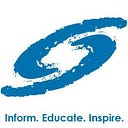From raising fruit flies in her bedroom to becoming a Regeneron Science Talent Search Finalist: One young scientist’s journey
by Marissa Sumathipala, senior at Broad Run High School and Regeneron Science Talent Search 2018 finalist
I pick up the slim silver tools and begin, slicing straight across the thorax. Suction. Make two parallel cuts lateral to the dorsal side of the abdomen. Suction. Carefully remove the internal organs crammed into the abdomen. Suction. At last, I can see it — a writhing heart, beating before my very own eyes.
As grim as it sounds, this is all true. I omitted just one thing — the creature on the table was but a tiny, harmless fruit fly.
Mastering fruit fly heart surgery was only one part of my research endeavor to find a new therapeutic for heart disease. I’ve done hundreds of fly surgeries to study their tubular hearts in various states — healthy, diseased, and treated with my therapeutic. Yet, every time I see a beating fly heart, it never fails to fascinate me.
It is this simple but profound fascination with the natural world that drives me to overcome the long arduous hours and the inevitable challenges that come with wet-lab research. I know, behind those wonders lie answers waiting to be discovered: answers that can advance our understanding of complex, interconnected biological systems and ameliorate the burden of disease.
Inquiry has become habitual to me now, but it goes back a long way. Perhaps it was the rich exposure to the natural world that triggered my insatiable curiosity. From a very young age, I trekked in National Parks across the country with my family, ranging from ancient Permian reefs in the Guadalupes to fossil beds in the Badlands. Beholden by the lessons of nature, I embarked on my first science research project in middle school to study the multigenerational effects of pesticides, using fruit flies as a model organism. So, I turned my bedroom into a fruit fly laboratory and took over my parents’ kitchen to cook fly food.
Eventually, I developed an interest in examining bolder, bigger questions. I read everything I could get hold of from science magazines to interesting research journal publications. Along the way, I took a special interest in heart disease, partly because it is one that has a personal bearing on me — my paternal grandfather passed away from a heart attack when my father was just a teenager — and because it claims the most lives worldwide. One out of three people die of heart disease and 400 million are afflicted by it. These facts and my personal history compelled me towards its study.
At first, I set out to learn as much as I could about heart disease. After some initial explorations where I induced heart disease in flies, using my bedroom fruit fly laboratory, I took my project ideas for a heart disease therapeutic to many labs before I eventually gained access to a lab at the Johns Hopkins University School of Medicine. I spent the past two and a half years at the Cammarato lab investigating a new dual therapeutic to treat both the cardiovascular and metabolic parts of heart disease. I am immensely fortunate and grateful to my mentor Dr. Blice-Baum, Dr. Anthony Cammarato the lab’s PI, and Ms. Meera Viswanathan for not only giving me an opportunity to pursue my passion for heart disease research but to experience first-hand three magnanimous human beings, who work steadfastly to make a better world through their dedicated research.
Going from raising fruit flies in my bedroom to being named a Regeneron Science Talent Search Finalist has been an incredible journey, and one I would not have predicted, ever. It was not without setbacks and failures. There was that time when the genetically manipulated fruit fly crosses I’d spent weeks carefully breeding all suddenly died. Disbelief hit first, then frustration quickly set in. To get back up and move on, I learned to accept that researching real, living things was not going to be like my other computational projects; no quick debugging or code patch that could fix the issue in a few hours or days.
From this experience, and dozens of others just like it, I learned that setbacks and disappointments are a practically an inevitability of not only research, but also life in general. What’s most important is how you rise from them, not give up, and press on. My parting words are to believe in yourself as you follow your passion to discover and innovate. Through your thinking and hard work, you will enable what seems impossible today to make tomorrow better for all people.

